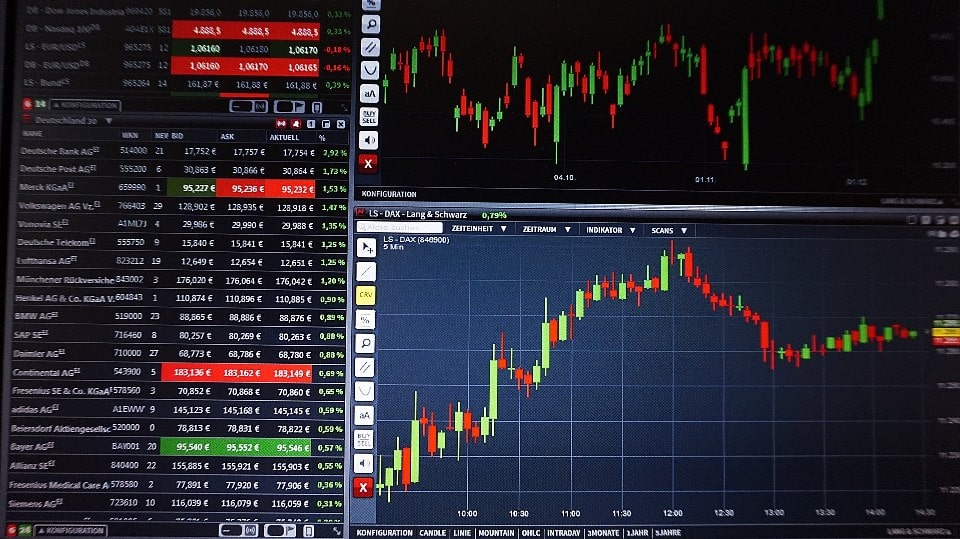Getting started in Forex Trading can seem overwhelming for beginners, but with the right guidance, tools, and mindset, you can confidently take your first steps in this exciting market. Forex Trading is the process of buying and selling currency pairs with the aim of making a profit from changes in exchange rates. As the largest and most liquid financial market in the world, it offers endless opportunities for retail traders across the globe. Whether you want to trade full-time or as a side hustle, understanding the basics and following a structured approach will significantly increase your chances of success. If you want the best platform to support your growth and learning, you should explore Forex Trading resources designed for retail traders aiming for consistent results.
Understanding the Basics of Forex Trading
Before you jump into live markets, you must understand how Forex Trading works. The market operates 24 hours a day, five days a week, with major sessions in London, New York, Sydney, and Tokyo. Currencies are traded in pairs such as EUR/USD, GBP/JPY, or USD/CHF, and each pair represents the value of one currency relative to another. Your goal in Forex Trading is to predict the price direction of these pairs and profit from the movement. To do this effectively, beginners must learn how to read charts, interpret economic news, and understand how market sentiment affects price action.
Choosing the Right Broker for Forex Trading
The broker you choose can make or break your Forex Trading journey. Beginners should select a broker that offers a user-friendly platform, competitive spreads, reliable customer support, and regulation by a recognized authority. Look for brokers that also provide educational resources, demo accounts, and risk management tools to help you develop your skills before risking real money. Remember, transparency and trust are non-negotiable when it comes to trading your hard-earned capital.
Setting Up Your Trading Account
Once you’ve chosen your broker, you’ll need to open and verify your trading account. This process usually involves filling out an application, submitting identification documents, and funding your account. Beginners in Forex Trading should start with a small deposit they can afford to lose while learning the ropes. Many brokers allow you to start trading with as little as $100, but it’s more important to focus on learning proper techniques than aiming for large profits at the start.
Learning to Analyze the Market
Market analysis is the foundation of Forex Trading success. Beginners must learn two primary types of analysis: technical and fundamental. Technical analysis involves reading price charts, identifying patterns, and using indicators to forecast future price movements. Fundamental analysis, on the other hand, examines economic events, central bank decisions, and global news that influence currency values. Combining these approaches gives traders a more complete picture of the market and helps them make informed decisions.
Building a Solid Forex Trading Plan
A trading plan is a written set of rules that outlines how you will trade. It includes your strategy, risk tolerance, entry and exit rules, and money management guidelines. Beginners in Forex Trading should never place trades without a clear plan, as impulsive decisions often lead to losses. Your plan should also include how you will track your trades and review your performance to identify strengths and weaknesses.
Practicing on a Demo Account
Before risking real money, beginners should practice Forex Trading strategies on a demo account. This allows you to trade with virtual funds in real market conditions, helping you gain confidence without financial risk. Treat your demo account seriously—practice proper risk management, test different strategies, and refine your decision-making skills. Once you achieve consistent results in demo trading, you can transition to a live account.
Starting Small and Managing Risk
One of the golden rules of Forex Trading is to never risk more than you can afford to lose. Beginners should start with small trade sizes and limit risk to a small percentage of their trading capital per trade—usually 1–2%. Using stop-loss orders can help protect your account from large losses. Over-leveraging is one of the main reasons beginners fail, so use leverage cautiously and prioritize capital preservation over chasing profits.
Mastering the Psychology of Forex Trading
Trading psychology plays a huge role in Forex Trading success. Fear, greed, and impatience can cloud your judgment and lead to poor decisions. Beginners must learn to control their emotions and stick to their trading plan no matter what the market throws at them. Maintaining discipline, patience, and a long-term mindset will help you avoid the common traps that wipe out inexperienced traders.
Learning from Mistakes and Improving
No trader is perfect, and losses are part of the journey. The key to long-term Forex Trading success is learning from your mistakes and making improvements. Keep a trading journal to record your trades, analyze your decisions, and note patterns in your behavior. By continuously refining your approach, you’ll gradually become more confident and skilled in navigating the market.
Staying Updated with Market News
The Forex Trading market is constantly influenced by economic and political events. Beginners should follow financial news, central bank statements, and economic reports to stay informed about factors that might impact currency movements. Using an economic calendar can help you plan your trades around high-impact events that cause volatility.
Final Thoughts on Starting Your Forex Trading Journey
Starting your journey in Forex Trading can be exciting and rewarding if you take the time to learn the basics, develop a plan, and practice patience. Remember, it’s not about making quick money but about building skills that can serve you for years. With discipline, the right mindset, and continuous learning, you can navigate the market successfully and grow your trading portfolio. The key is to approach trading as a marathon, not a sprint. Equip yourself with the right tools and strategies, and you’ll be well on your way to becoming a confident and profitable trader.




